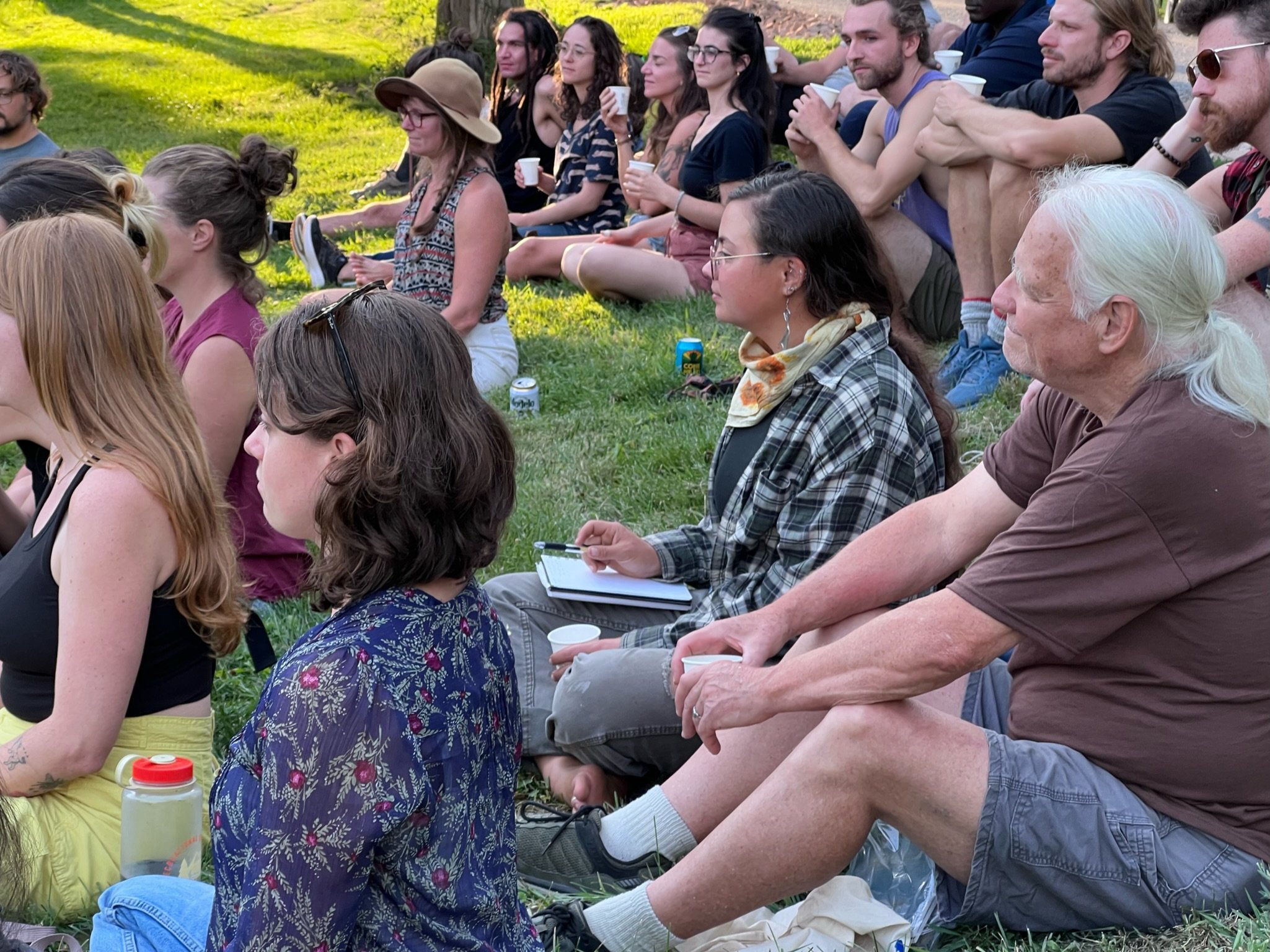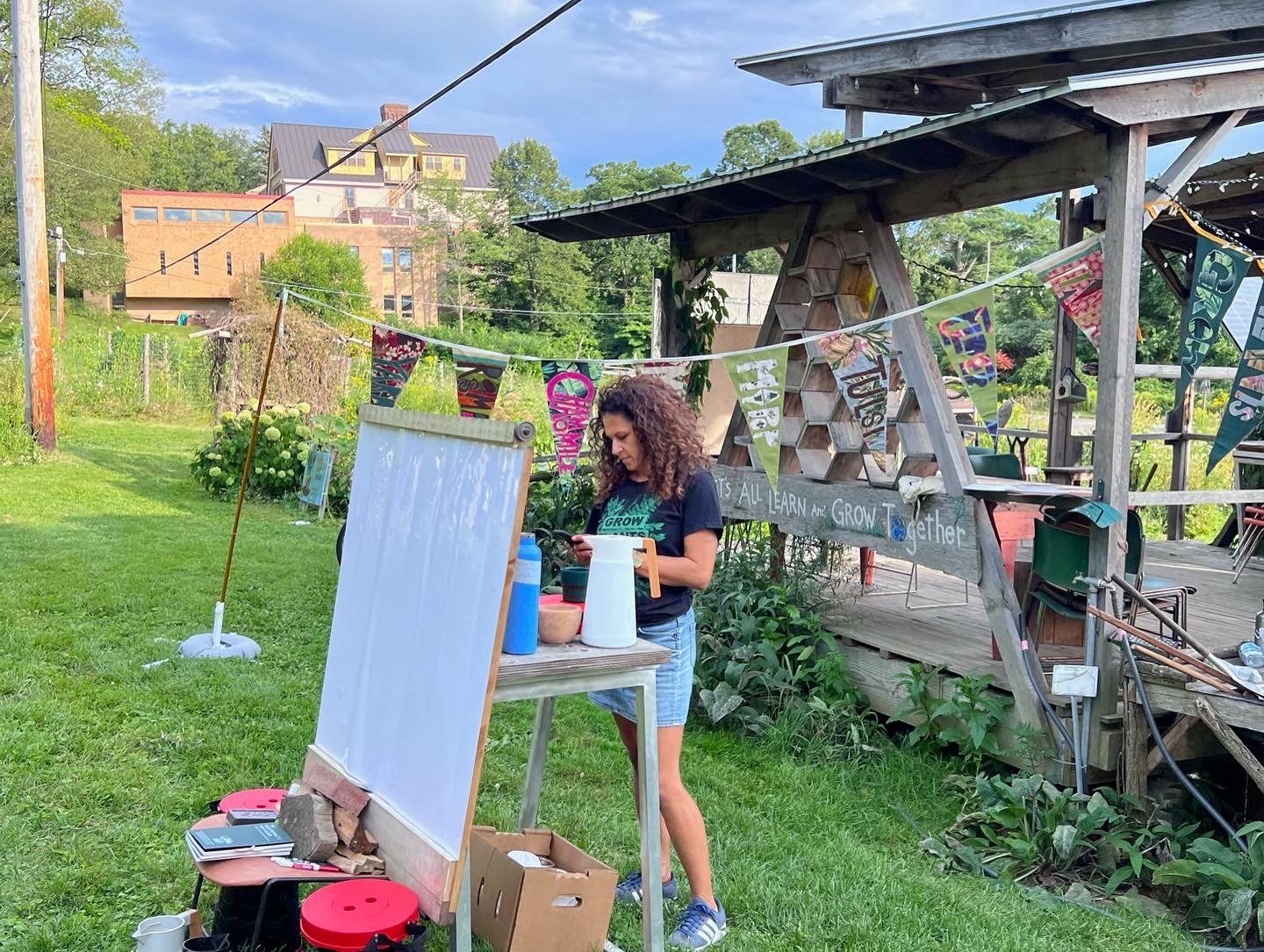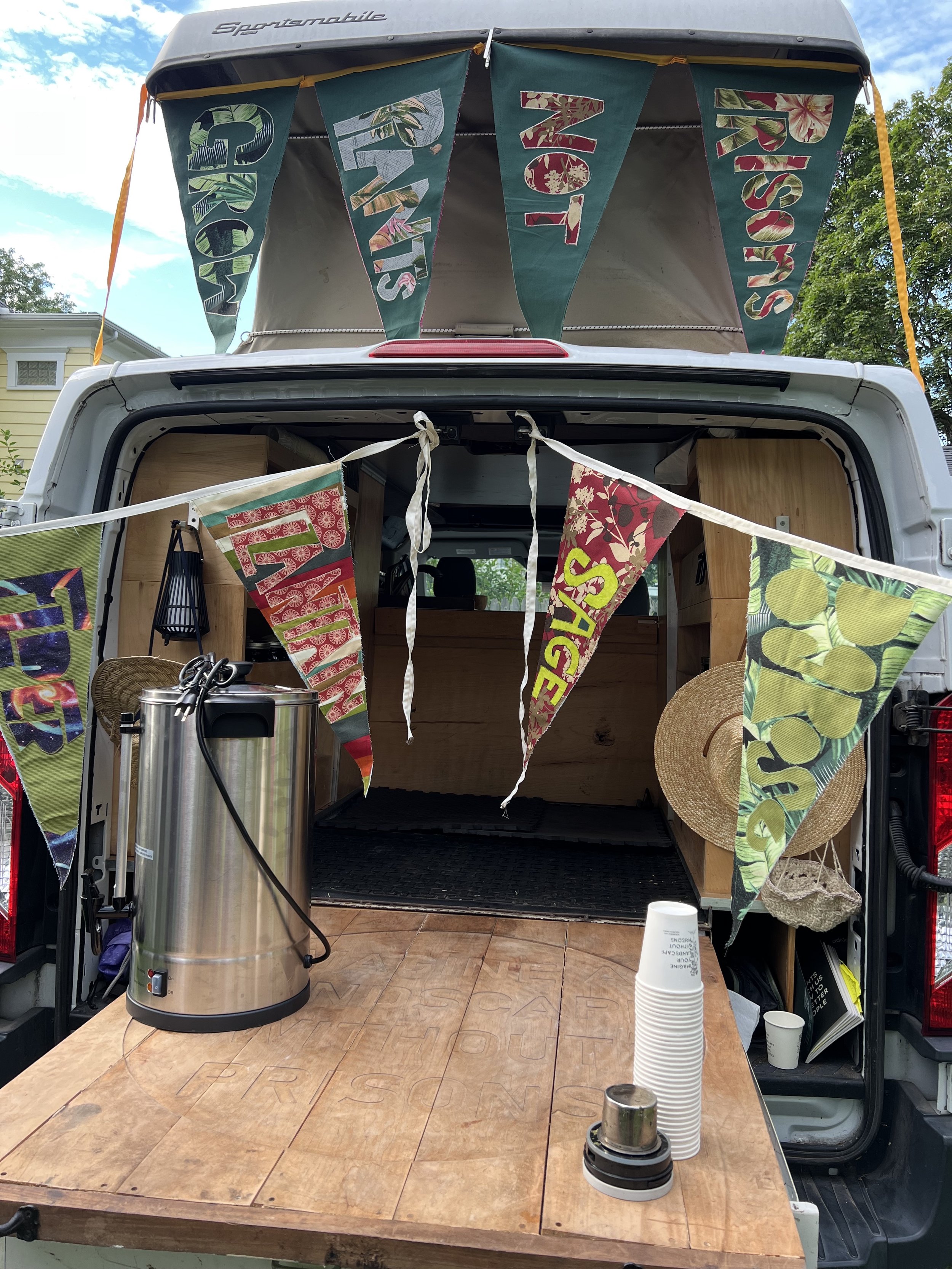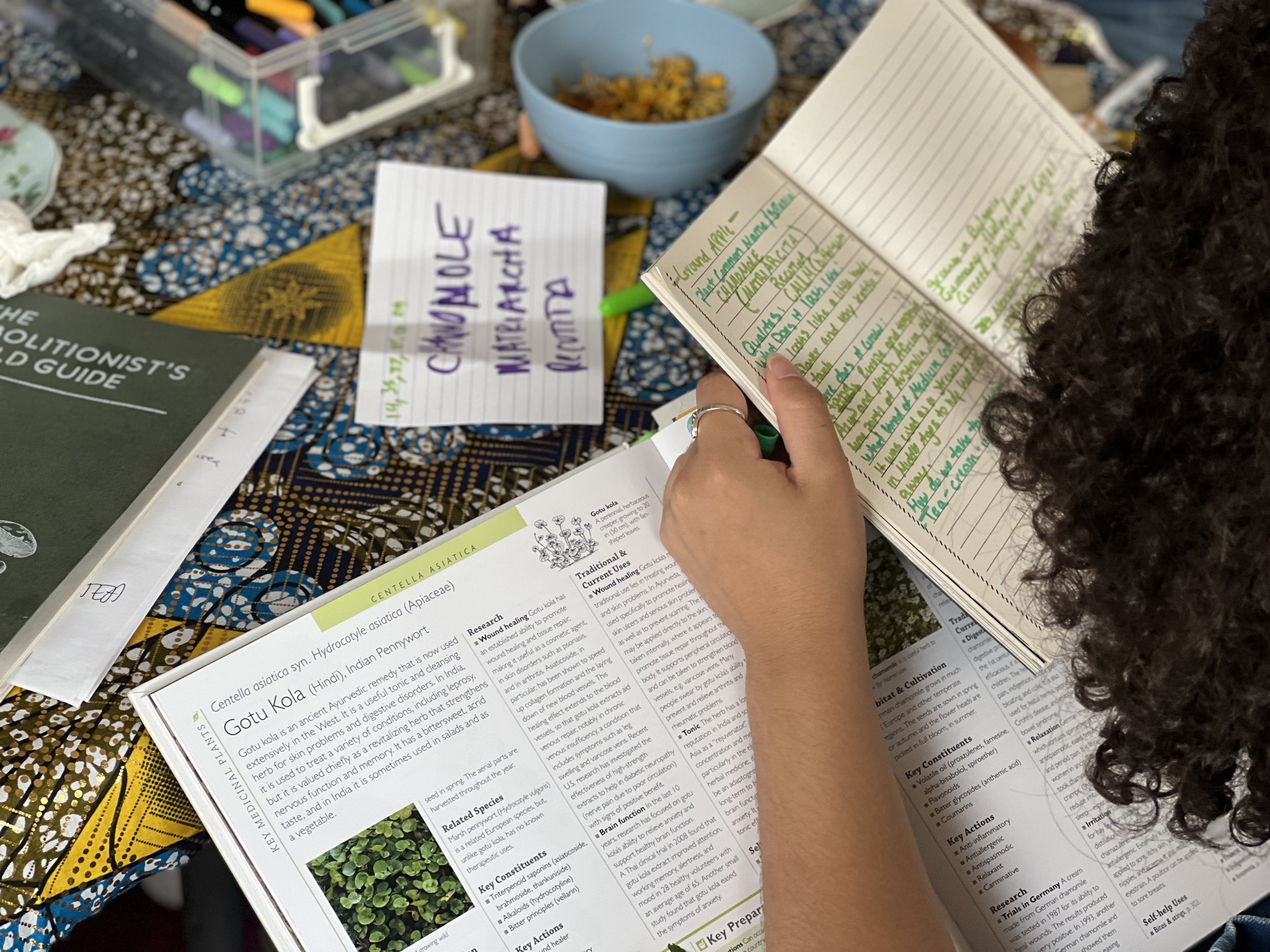The Abolitionist’s Tea Party
Dream it.
Historically, plants are part of the resistance, communicating freedom and liberation. Plants, as healers and storytellers were used to map significant places along the underground railroad. Okra (ngombo), whose seeds were braided into the hair of the enslaved as they struggled to survive the abhorrent middle passage were then planted into colonized soil. The bright yellow ngombo flowers became beacons of hope to other enslaved individuals. It is said that enslaved people could remember their homeland through the flowers that waved to them on foreign soil.
An Abolitionist’s Tea Party will ask; How does the natural world endorse abolition as a strategy for liberation? If we accept abolition as a commitment to ending cycles of harm, we can begin to see all the ways the natural world informs the tenets of human abolition. From the gardens we learn profound lessons in patience, interdependence, care and mutual aid. We learn about different relationships and boundaries. Abolition, like growing a plant, requires daily attention and care. Love, hope, compassion, social equity- like a garden-need time, patience, practice and nurturing to fully blossom. Learn more about this beautiful project through Creative Capitals’ Artist Diary.
Drink it.
In practice we will circle up, taste, feel, smell different plants, many who are considered “weeds”. Participants collectively define and share their experience and understanding of abolition, then we ask the plants how they endorse those ideas. (People convicted of crimes in the US are often treated like the weeds of our society— ignored, dismissed, or even eradicated. The pesticides and herbicides of society are the cultural infrastructures that reinforce what Isabel Wilkerson calls the American caste system, a permanent classification designed to keep human value hierarchical for the sake of capitalism.
When ecologists project green biases on plants it normalizes the hierarchical language we use on humans. When it comes to incarceration and the cultural response to crime, the same reductive biases eclipse our ability to celebrate the complexity of our own humanity. Abolitionists work to celebrate complexity, diversity and wholism, even when some of the facts are competing. In doing so, we evolve humanity.




















